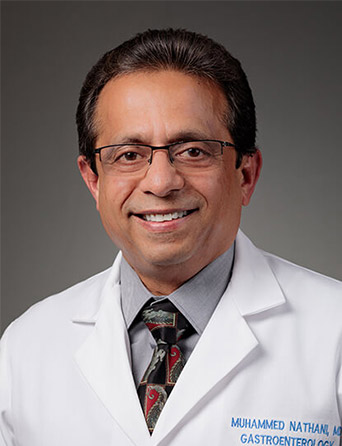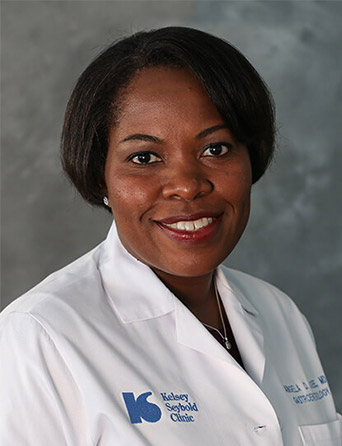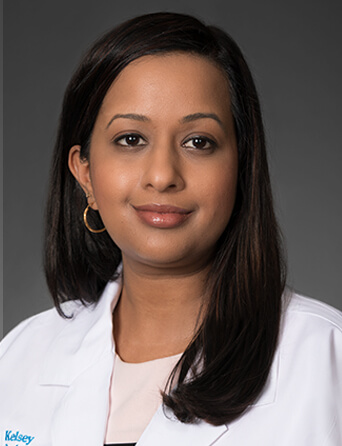Join Our eNewsletter!
Subscribe to our monthly newsletter to receive encouraging advice to help you lead a healthy lifestyle.

Colon Cancer: Preventable. Treatable. Beatable!
Colorectal cancer is a term that encompasses both colon and rectal cancer. Colorectal cancer is not only the second-leading cause of cancer-related deaths among men and women in the U.S., but it’s also one of the few cancers that can be detected in its precancerous state. This makes it a highly preventable condition if individuals receive a colonoscopy when recommended.
Unfortunately, although a simple, potentially life-saving colonoscopy is only needed every 10 years, close to half of the population over age 50 don’t get screened, and 1 in 3 people aren’t up to date with colorectal screenings.
The good news is that the death rate of colorectal cancer in people over 50 dropped by 55 percent from 1970 to 2018 and the incident rate of the cancer in older adults has been decreasing over the last several decades.
Unfortunately, younger people are developing colorectal cancer at an increasing rate. Among those aged 20 to 49, there was a 51 percent increase from 1994 to 2012. Research suggests this may be due to a lack of awareness in younger people about the signs and symptoms of colon and rectal cancers, but the exact reason is unknown.
Colorectal Cancer Symptoms
In the early stages, you may not experience symptoms, which is why early detection is so important. Colorectal screening can reveal polyps in the colon before the cancer grows and develops into early-stage cancer. However, if not caught early, colorectal cancer and the polyps associated with it can cause:
- Bright red or very dark blood in the stool
- A change in bowel habits, such as a change in frequency of bowel movements, a change in the color of stools, or frequent narrow stools (pencil thin)
- Frequent gas pains, bloating, abdominal cramps, or the ability to pass gas
- Unexplained or rapid weight loss
- Chronic weakness and fatigue
Colorectal Cancer Screening and Diagnosis
A colonoscopy is considered the “gold standard” of colorectal cancer screenings. During the procedure, a flexible tube with a light and camera on the end is inserted into the rectum while you’re under sedation. The camera allows your doctor to examine your entire colon and rectum to check for polyps. If any are found, the doctor will either remove the polyp completely or take a tissue sample from an area that doesn’t appear normal. The polyp or sample will then be sent off for testing to determine if cancer cells are found. The procedure usually only takes 15 to 45 minutes.
It's recommended that everyone who’s considered average risk for colorectal cancer begin screening at age 45. If you have a family history of colorectal cancer, you may need to begin screening at age 40 or earlier, depending on your doctor’s guidance.
However, not all eligible people are willing or able to undergo colonoscopy. In these cases, patients may be offered an alternative CRC prevention test, such as a flexible sigmoidoscopy, a computed tomography (CT) colonography, or a fecal occult blood test (FOBT). All of these screenings are available at Kelsey-Seybold.
Flexible sigmoidoscopy uses a flexible scope to examine the lining of the rectum and the lower part of the colon. A sigmoidoscopy isn’t as thorough as a colonoscopy because only part of the colon is visible. It’s done without sedation and is often combined with other tests, such as the fecal occult blood test (FOBT).
Fecal occult blood test (FOBT) is a cancer detection test used mostly by primary care physicians to check for blood hidden in stool. False-positive and false-negative results remain an issue.
CT colonography, also referred to as "virtual colonoscopy," is performed in the Radiology department and is read by radiologists. A positive test will usually lead to a colonoscopy. Low detection rates for flat lesions remains a significant issue.
There are also now fecal, or stool, DNA tests that can be done at home and sent in for results. The test collects a stool sample that’s tested for certain DNA changes that may indicate the presence of cancer cells.
Early detection is your best defense. If you’re 45 or older and are due for a colorectal cancer screening, ask your doctor about scheduling a colonoscopy.







